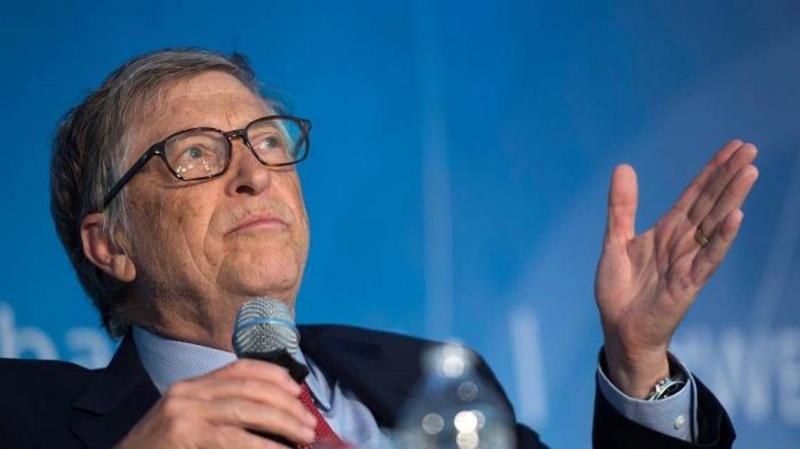As the Omicron variant of COVID-19 ravages the world, infecting more than 15 million cases in the past week, Microsoft co-founder Bill Gates sees a glimmer of hope. In a Q&A on Twitter with Devi Sridhar, head of the Global Public Health Department at the University of Edinburgh, Gates stated that once the current wave subsides, countries can expect to see "much fewer cases" by the end of 2022. He added that likely, COVID could be "treated like seasonal flu" after that.
Gates was among the first to make predictions about the spread of a global pandemic. Some experts have noted that despite its serious nature, the swift spread of Omicron could potentially foster herd immunity, thus making the disease endemic, according to CNBC, which was reported by Al Arabiya.net.
For his part, Gates anticipated that Omicron would create significant immunity, at least for the following year, emphasizing the importance of timing: if a sufficient number of countries could maintain a certain level of simultaneous immunity against COVID—whether through vaccination or otherwise—the virus's circulation might slow down long enough to transition the pandemic into an endemic phase.
Gates added that once COVID ultimately becomes endemic, "we may need annual vaccine boosters for some time," akin to annual flu shots. On Monday, the United States reported 1.5 million new COVID cases and set a new record for hospitalizations. However, Dr. Anthony Fauci, the chief medical advisor to President Joe Biden, predicted that the current wave of Omicron cases would peak in the U.S. by the end of January.
Last week, the Centers for Disease Control and Prevention projected a "sharp decline" in cases once Omicron passes. Gates remarked that until Omicron recedes, unvaccinated individuals will continue to experience "the harshest cases" of COVID. He also expected that health systems worldwide would endure "challenges" due to Omicron's extremely high transmissibility.
Gates noted that Omicron could be the last variant of public health concern, acknowledging that while it is hard to envision new strains with such high spreading potential, it is not impossible. He wrote in a tweet: "It is unlikely that there will be a more transmissible variant, but we have been surprised many times during this pandemic."




